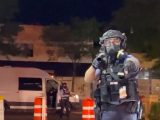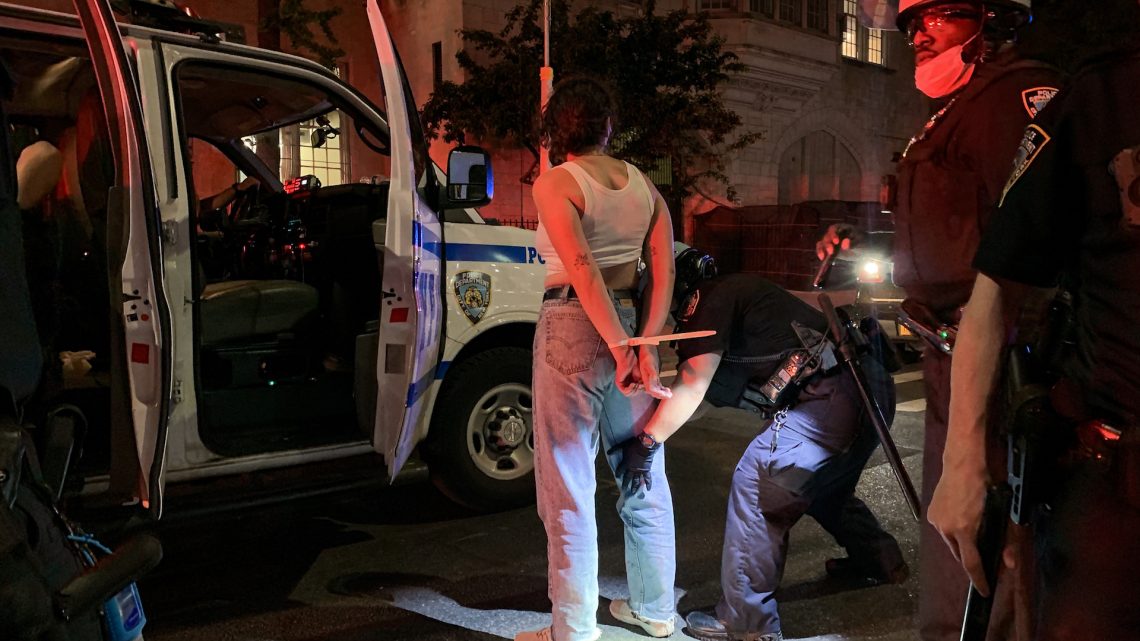
Protesters Facing Felony Charges in New York Could Wait Days in Rikers Before Their Hearings
May 31, 2020Want the best of VICE News straight to your inbox? Sign up here.
In the three nights since protests erupted over the police killing of George Floyd, police have arrested 345 people in New York City.
While the overwhelming majority of those arrested were charged with misdemeanors or nonviolent felonies, several have been charged with felony assault. At least three protesters involved in the burning of a police van are facing federal charges.
The protesters charged with misdemeanors or nonviolent felonies will have to appear in court at a later date, but those who received felony assault charges can expect to be held for days in jail. Normally, the arraignment process takes about 24 hours, but since COVID-19 has crippled New York’s court system, that process can now take as long as 40.
According to several public defenders, most people who can’t make bail will be held at Rikers until they can appear in court. That could mean indefinitely, as long as courts are paused in New York City. Rikers has one of the highest rates of coronavirus infections in the city.
And even after demonstrators appear, the odds haven’t been in their favor.
“My office worked on between 12 and 20 [preliminary] hearings, and I don’t think anyone has won,” said Liz Skeen, a lawyer with the Legal Aid Society in New York City. “Clients can either plead guilty or go to trial.”
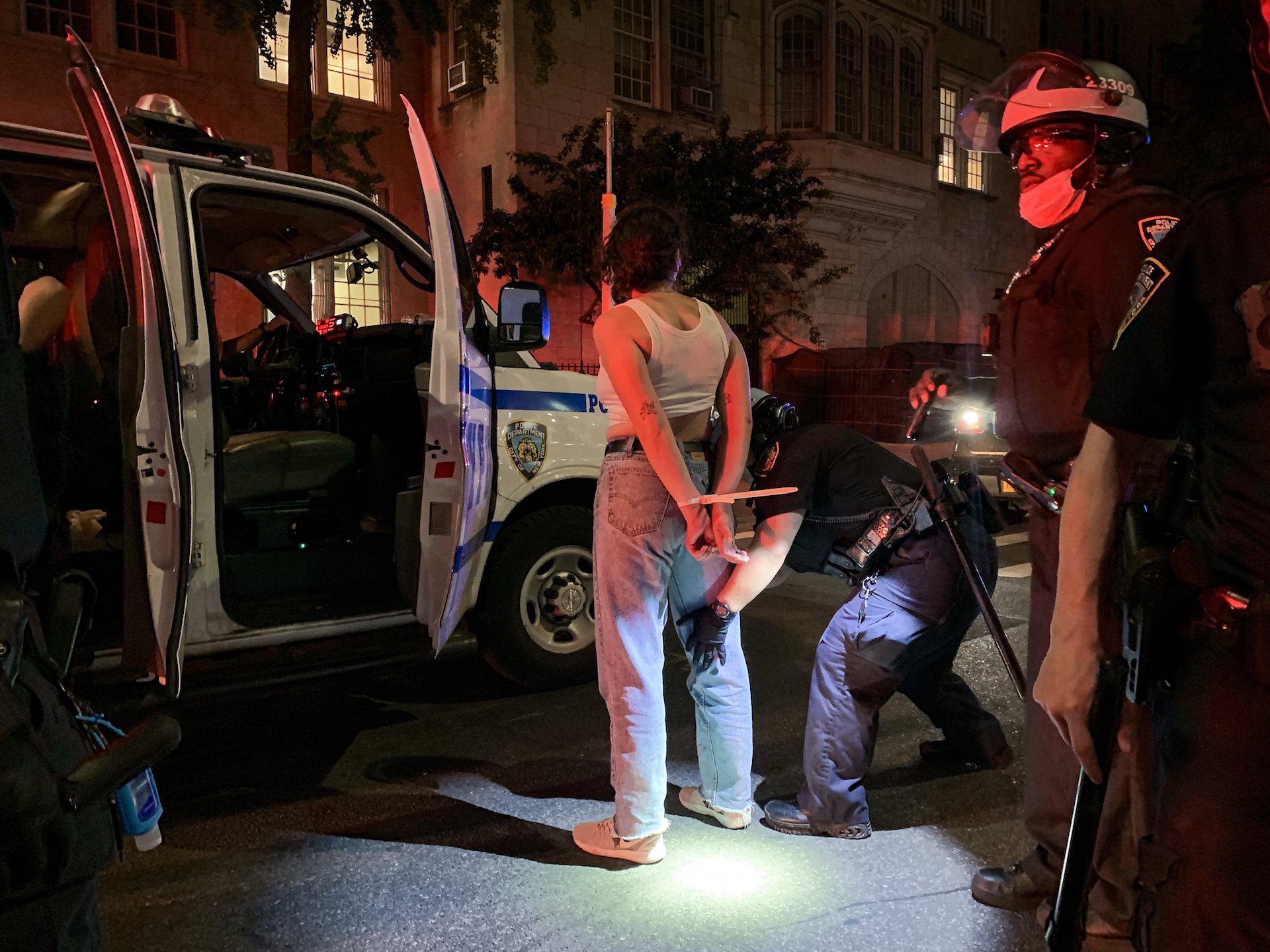
All procedures, like defendants conferring with legal counsel as well as actual arraignments, are held on Skype, which often leads to dropped calls and long shifts for judges and attorneys that stretch until 2 a.m.
Because the pandemic has stopped grand juries from convening, people can expect a preliminary hearing where a judge will hear from one witness, usually the arresting officer. The defense is allowed to cross-examine, but the defendant won’t be able to defend themselves.
The judge then has 45 days to hand down an indictment.
The lengthy process could also cost defendants their incomes. Some jobs, like those with licensing requirements to work with children or drive with a rideshare company, don’t let people work with a pending criminal case.
“That’s one of the saddest worst aspects of what I see,” Skeen said. “Then someone is out of work for six months because of it.”
But the prospect of jail time or losing their jobs doesn’t appear to be dissuading protesters, who told VICE News they’re willing to take the risk.
“Obviously, no one wants to be arrested, but it is something that we prepare for,” said Michael W., 30, who demonstrated against police in the south Brooklyn neighborhood of Flatbush, where hundreds of police and protesters clashed late into the night. He asked VICE News not to use his last name.
“We let relatives know that [arrest is] a possibility. We give them our savings account in case we need bail money, things like that. That’s a sacrifice we’re willing to make,” Michael said. “At this point, what else can we do? If it means getting beat by the cops, if it means going to jail for some time and getting a record, that’s unfortunate. But that’s a risk we’re willing to take.”
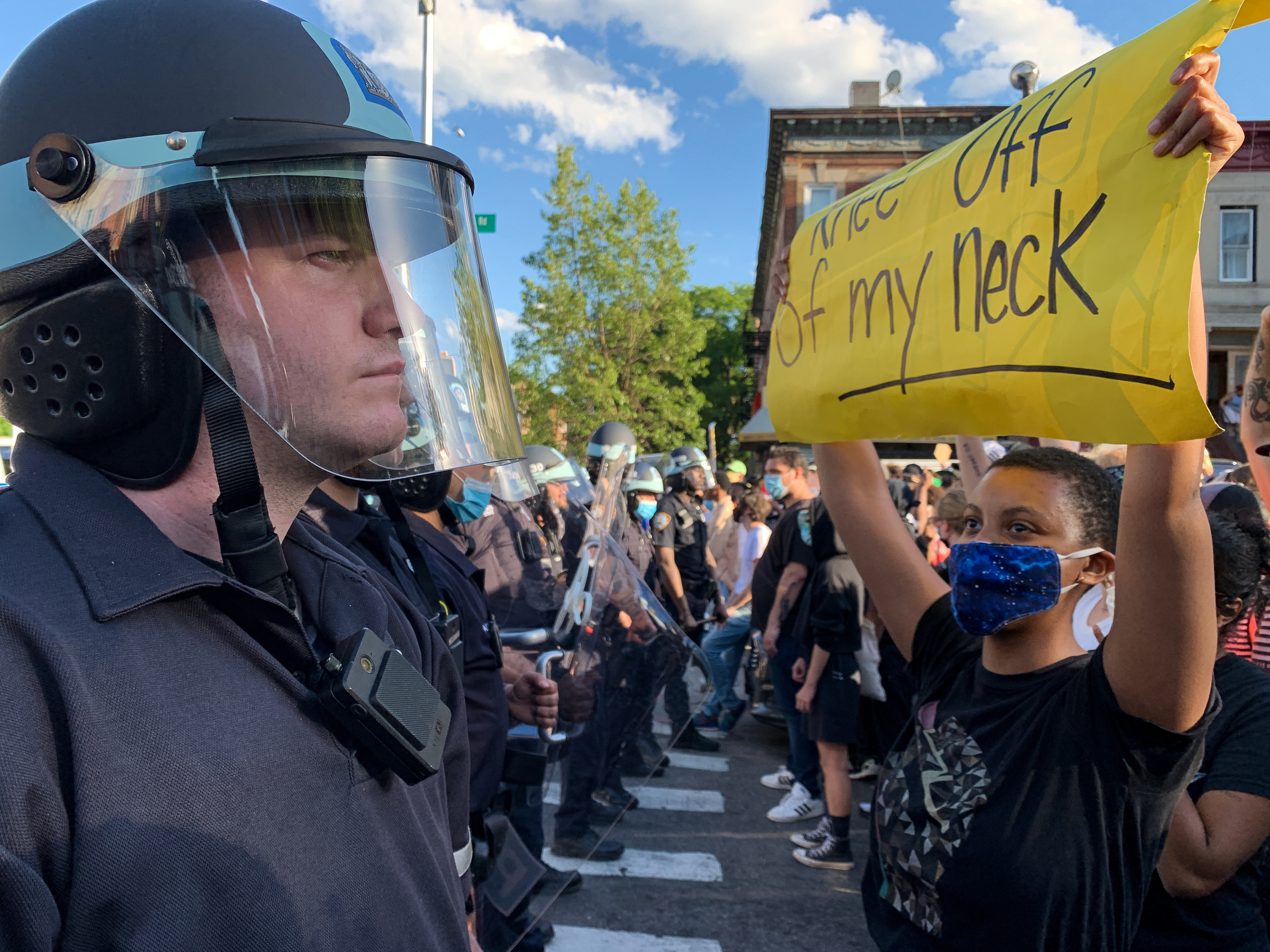
Carolina Castenada, 24, was prepared for the possibility of being arrested: She’d used Sharpie to write down the number of the National Lawyers’ Guild on her arm, as well as the numbers of friends she could call for bail money. At least one representative from the National Lawyers’ Guild also wandered through the Flatbush crowd, wearing a lanyard with the number to report incidents and arrests.
“It’s more important for me to be here, then [worry about being] arrested,” she told VICE News. “I’m not ashamed to say that the reason I got arrested is because I was standing up for my brothers and sisters of color. I will, to my dying day, defend my choice to be here. I’m a little scared but I know it’s more important for me to be standing here right now.”
“This is worth it, this is a fight against racism,” Castenada added. “I want my children to live in a world where there is less of it. If I have to pay a price, then I will.”
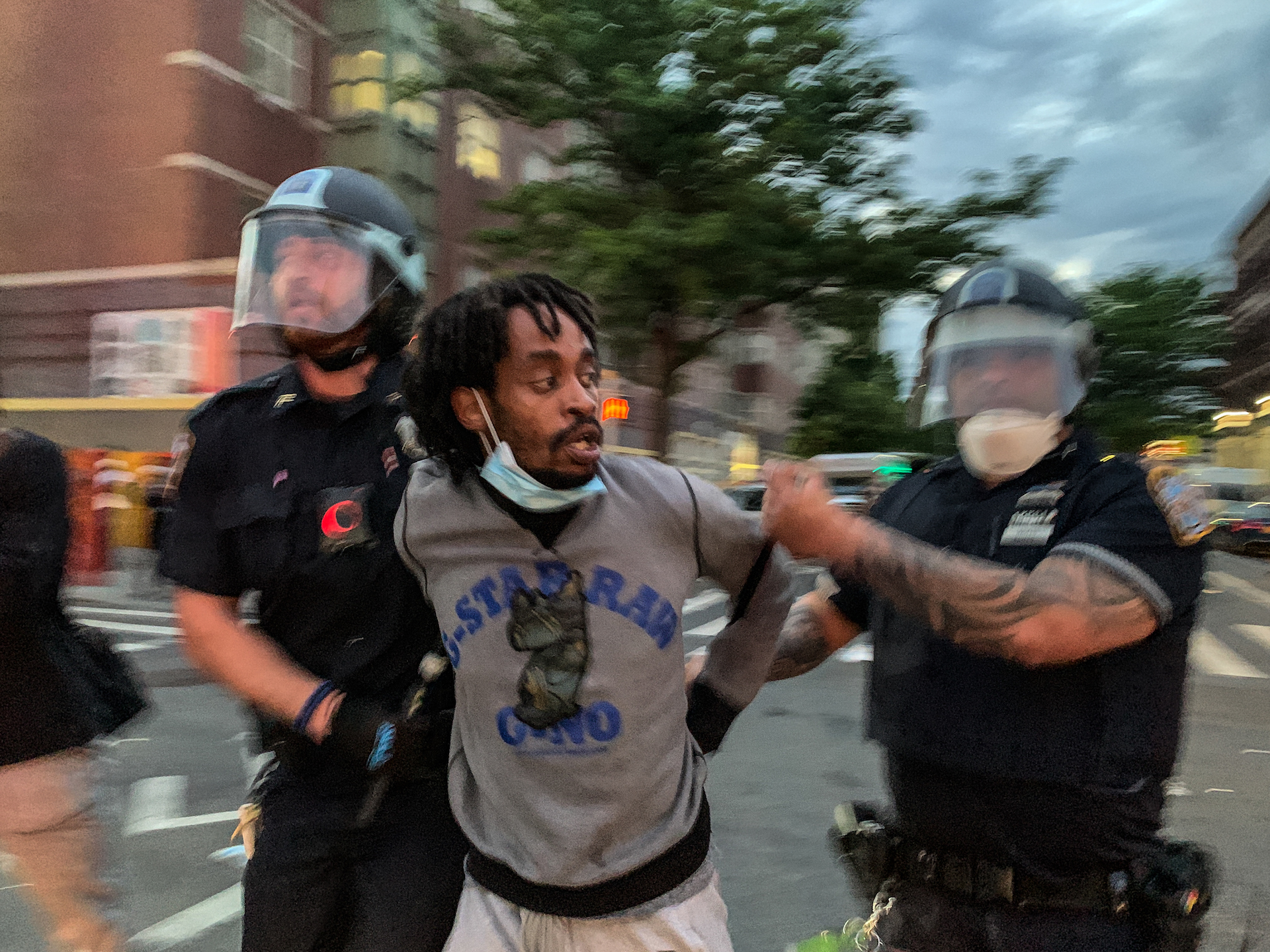
Several people were taken into police custody throughout Saturday night in Flatbush, a majority black neighborhood that has one of the highest rates of coronavirus hospitalization in the city. HuffPost reporter Chris Mathias was one of the individuals arrested while covering the protests. His press badge was clearly visible as officers led him away.
Some locals like Anthony Beckford, a candidate for city council, blamed the escalating violence with police on people who’ve joined the protests from outside the neighborhood. Cops would periodically charge into the crowd of protesters and drag individuals off into a van, waiting a block away from the main confrontation.
“These were not our white allies, these were white co-opters from wherever else,” said Beckford, who also leads the Brooklyn Sector of CopWatch Patrol Unit, an activist organization that aims to protect people of color from discriminatory policing. “They came and damaged one of the vans out here, who gets picked up and who gets beaten for that? Our people.”
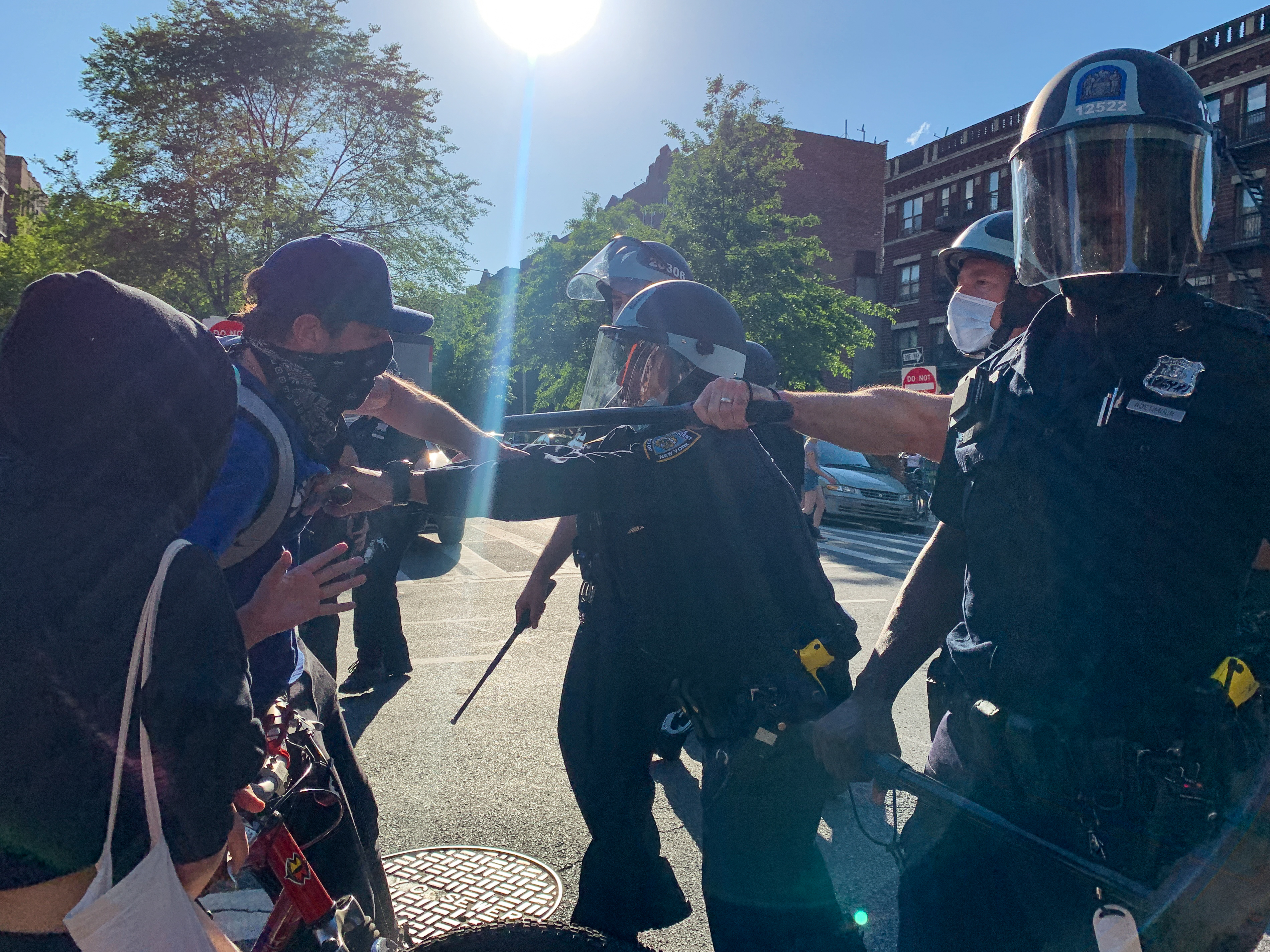
“The difference is, the people that’s from our community are going to get arrested and stay in. The people from other communities are going to get out,” said Monique Chandler-Waterman, who works for New York state assemblyman N. Nick Perry. She said she’s lived in the Flatbush area her entire life and didn’t recognize many of the people clashing with police. “There's a big disparity about what color you are in this system.”
Chandler-Waterman said she’s deeply worried that taking people into police custody is going to make local COVID-19 rates skyrocket.
“They should be able to go home, because they didn’t commit a crime, in my opinion,” she said of nonviolent demonstrators. “That’s not somebody who needs to go through and spend the night in jail, in my opinion, because the increased risk of people being in jail and gathering — you don’t want that. You shouldn’t add to the system, at this point.”
Even the protests themselves are a danger, she added. Many of the police officers at Flatbush weren’t wearing masks.
“I’m concerned that there’s gonna be a big spike after this. You cannot talk about reopening when we had a thousand people out here and we were not six feet apart.”
Cover: An NYPD vehicle is shown in the Flatbush neighborhood of Brooklyn, where protesters gathered in the streets on on Saturday, May 30, 2020, to demand justice for George Floyd. (Photo: Joe Hill/VICE News)

